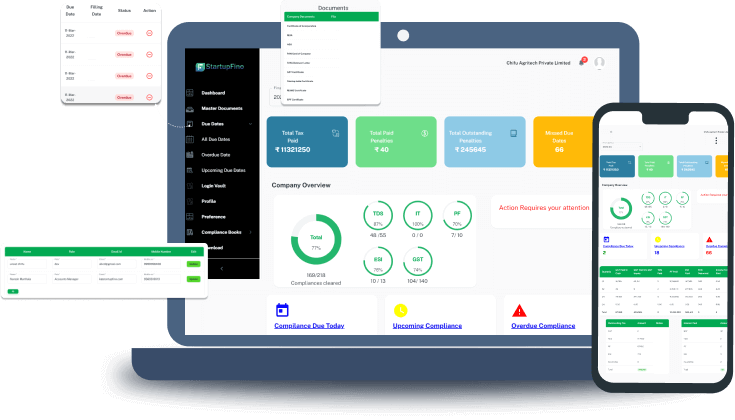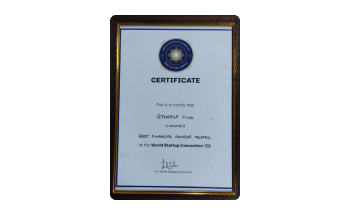Non-Disclosure Agreements commonly referred to as NDAs, are legally binding contracts in which parties commit to not disclose specific information specified in the agreement. NDAs act as a protective barrier, preventing third parties from accessing and sharing confidential details. They are widely used in various business contexts, including partnerships, safeguarding a company's intellectual property (particularly trade secrets) and regulating employee behaviour.
In essence, if a person breaches the NDA by revealing prohibited information after signing the agreement, legal action can be taken to seek damages. To ensure the enforceability of the NDA, it is essential to establish its legal validity.
In India, Non-Disclosure Agreements fall under the governance of the Indian Contract Act of 1872. For an NDA to be valid and enforceable, it should be appropriately stamped as per the stamp duty regulations.
Uses of Non-Disclosure Agreements
NDAs are employed for various purposes where maintaining silence on a particular subject is necessary. Common uses of NDAs include protecting the following:
- Intellectual Property Information:
Ensuring that sensitive intellectual property details are not disclosed to business employees, contractors, partners, and others.
- Confidential Business Plans:
Safeguarding discussions about fictional inventions or business plans shared with partners or investors.
- Trade Secrets:
Shielding a company's trade secrets, such as sales leads or strategies.
- Personal and Sensitive Information:
Keeping private matters, such as consensual affairs or potentially embarrassing details that could harm an individual's reputation, confidential.
- Medical Information:
Protecting patient lab results for various diseases conducted by laboratories.
Benefits of Signing a Non-Disclosure Agreement
Non-Disclosure Agreements offer various benefits to the parties. Given below are some key advantages of signing an NDA:
- Clear Obligations:
NDAs establish clear obligations for the parties involved. They outline the rights and responsibilities of the disclosing and receiving parties, ensuring that everyone understands when and how the obligations apply.
- Confidentiality Assurance:
NDAs give parties confidence that their confidential information will be kept secret. This assurance is essential when sharing valuable trade secrets, intellectual property or proprietary data.
- Preservation of Secrets:
NDAs help maintain the secrecy of critical business information, such as product development plans, financial data or marketing strategies. This preservation of secrets is essential for competitiveness and success.
- Commitment to Protection:
NDAs demonstrate a commitment to protecting confidential information. They encourage both parties to perform due diligence in safeguarding sensitive data, promoting trust and responsible handling of the information.
- Protection of Intellectual Property:
NDAs play a vital role in shielding intellectual property, including trade secrets, proprietary information and other valuable assets. This protection serves to safeguard the organisation's competitive edge and innovations.
- Overall Organisational Protection:
NDAs significantly contribute to the overall security of the organisation by maintaining the confidentiality of sensitive information. They aid in reducing the risks related to information leaks, which can pose significant consequences for a business.
Key Elements of a Non-Disclosure Agreement
Non-Disclosure Agreements serve as legal documents intended to safeguard confidential information. When drafting an NDA, it's important to include key elements as given below:
- Parties Involved:
Disclosing Party: The entity or individual sharing the confidential information.
Receiving Party: The entity or individual granted access to the confidential information.
- Description of Confidential Information:
Provide a detailed and comprehensive description of the confidential information being protected. Specify the type of information, such as trade secrets, IP, business plans, etc.
- Scope of the Agreement:
Define the NDA's scope, including the specific purpose for sharing the information and who within the receiving party's organisation can access it. Specify limitations on use, disclosure and the obligation to maintain confidentiality.
- Exclusions from Confidentiality:
Clarify what circumstances or information are not bound by the confidentiality requirement. This could include public domain information, already known information or data becoming public without a breach.
- Validity and Duration:
The NDA stays active for a certain period, usually between two to five years. After this time, the receiving party doesn't have to follow the rules of the NDA anymore.
- Duties and Obligations:
Detail the responsibilities of both parties. This includes the duty of the receiving party to maintain information confidentiality and the disclosing party's obligation to identify what should be considered confidential.
- Consequences of Breach:
If someone breaks the agreement, it's important to explain what might happen. This could involve things like going to court, getting help to stop the breach or asking for money to cover any harm caused to the disclosing party.
- Dispute Resolution:
It's good to have a way to fix any arguments about the NDA. This might mean talking it out, getting a mediator or using an arbitrator. Also, say which place's laws will be used if there's a legal issue because of a breach.
Types of Non-Disclosure Agreements
There are 3 types of NDAs that are used:
- Unilateral Non-Disclosure Agreement
A Unilateral NDA involves only one party being bound by confidentiality obligations concerning the shared information. Typically used within organisations, especially with employees, it requires employees to sign agreements prohibiting disclosure of the company's sensitive information that could potentially harm the company if exposed to the public or competitors. Unilateral NDAs are employed by organisations to safeguard proprietary information generated with the assistance of their employees.
- Bilateral Non-Disclosure Agreement
Also known as a Mutual NDA, this type of agreement involves both parties being obligated to maintain the confidentiality of shared information or materials. It is commonly preferred by businesses entering into joint ventures, as it requires a mutual commitment to protect confidential information and proprietary details. Bilateral NDAs play an important role in resolving disputes that may arise between the parties to the agreement.
- Multilateral Non-Disclosure Agreement
In contrast to the previous types, a Multilateral NDA involves more than two parties. Here, one party shares confidential information with multiple parties within the contract. The disclosing party expects all involved parties to maintain the confidentiality of the shared information and refrain from disclosing it to any external parties not part of the contractual agreement. Multilateral NDAs are particularly useful in scenarios where multiple entities need to collaborate while safeguarding sensitive information.
Exclusion Elements in a Non-Disclosure Agreement
In Non-Disclosure Agreements, there are usually exceptions that clarify when the receiving party doesn't have to keep the shared information confidential. These exceptions are important to cover situations where it might be tough or not fair to expect the receiving party to keep things a secret.
Some common exclusion elements in an NDA include:
- Recipient's Prior Knowledge:
If the recipient was already aware of the information before entering into the NDA, it should be excluded from the confidentiality requirement. The NDA does not impose obligations on the recipient regarding information they already knew.
- Publicly Available Information:
Information that is already in the public domain and which the recipient did not contribute to making public, is excluded from the NDA's confidentiality provisions. The NDA does not restrict the recipient from using or disclosing information that is already publicly accessible.
- Information Disclosed by Third Parties:
If the recipient gets the same information covered by the NDA from a third party who is not under the obligation to maintain confidentiality on behalf of the disclosing party, the NDA may exempt that specific information from its confidentiality requirements and is counted as an excluded element of NDA.
- Legal Obligation:
NDAs can incorporate provisions addressing situations in which the recipient is legally compelled to disclose the information. In such instances, the NDA usually permits the recipient to comply with legal orders without violating the NDA. This ensures that the NDA does not impede lawful disclosure requirements mandated by courts or government authorities.
Key Functions of a Non-Disclosure Agreement
Non-Disclosure Agreements serve several critical functions in various business contexts:
- Preservation of Patent Rights:
In scenarios involving the development of new products or concepts, NDAs are important in preserving patent rights. Public disclosure of new inventions might compromise the right to acquire a patent, as it could be considered prior art. By utilising a well-drafted NDA, inventors can uphold the confidentiality of their inventions and ideas. This helps prevent the loss of patent rights and ensures that the inventor retains exclusive rights over their creations.
- Distinguishing Exclusive and Confidential Information:
NDAs often make a distinction between exclusive and confidential information. Exclusive information refers to data or knowledge not publicly available or known to third parties and is typically owned or controlled by the disclosing party. Confidential information includes a wider range of sensitive data that parties agree to protect. NDAs clarify the scope of both exclusive and confidential information, providing legal clarity on what information should be kept confidential and protected.
When is a Non-Disclosure Agreement Required?
The following scenarios require the use of NDAs:
Presenting an Invention or Business Idea to Potential Partners, Investors, or Distributors:
Entrepreneurs and inventors often seek collaborations with potential partners, investors or distributors to materialise their innovative business concepts and generate revenue. However, there's a risk that these parties might appropriate the idea for their benefit. To protect their intellectual property, creators should use NDAs before sharing their ideas. In case of theft or unauthorised disclosure, the NDA acts as a legal safeguard, protecting the creators who've dedicated significant time and effort to developing their business models or unique concepts.
Sharing Financial, Marketing, and Other Sensitive Information with Prospective Buyers:
When considering selling their company, business owners often need to disclose confidential financial and marketing data to potential buyers. To maintain the confidentiality of their business-related information, sellers can establish NDAs with potential buyers. These agreements ensure that the disclosed information won't be misused or disclosed to unauthorised parties during the negotiation process.
Utilising Services from Other Companies or Individuals:
Entities receiving services or granting their employees access to sensitive information must safeguard their trade-related secrets and sensitive data. NDAs are important in these scenarios to ensure that the parties accessing confidential information are bound by confidentiality obligations. This prevents misuse or unauthorised disclosure of the information to others.
Enforceability of Non-Disclosure Agreements in India
In India, non-disclosure agreements are widely employed by business organisations and individuals. These agreements have gained substantial relevance in India, given the country's growing prominence as a hub for various commercial services and outsourcing centres.
To ensure the legality and enforceability of NDAs in India, several key aspects come into play:
- Indian Contract Act of 1872:
The Indian Contract Act of 1872 forms the fundamental legal basis for NDAs in India. It outlines the essential elements of contract formation.
- Stamp Duty:
In India, the payment of stamp duty is important for the legal validity of various documents, including NDAs. The Stamp Act of the respective Indian state prescribes the applicable stamp duty rates. Parties entering into an NDA must ensure that the document is appropriately stamped, as per the relevant state's stamp duty rules.
- Registration:
The Registration Act of 1908 mandates the registration of certain documents to impart greater authenticity and legal standing. While NDAs are not compulsorily required to be registered, parties have the option to register the document. Registration can provide an additional layer of protection and evidence in case of disputes related to the NDA.
Drafting a Non-Disclosure Agreement
Drafting a Non-Disclosure Agreement plays an important role in shielding sensitive information and proprietary knowledge. Although there isn't a strict, set format for an NDA, it's essential that it's customised to suit the specific needs of the involved parties and the type of information being safeguarded. Given below are the fundamental components to consider when composing an NDA:
Identification of the Parties:
Initiating the NDA involves clearly establishing the parties involved. In a unilateral agreement, the party revealing confidential information is termed the "disclosing party," while the one receiving it is simply referred to as the "recipient." If there are third parties with access to confidential information, their particulars should also be specified within the agreement.
Scope of Confidentiality Obligations:
This section should explicitly outline the responsibilities and liabilities of each party. It defines the purpose for which the confidential information will be used and specifies who is authorised to access this information. Clauses detailing steps and precautions to maintain information confidentiality are important.
Definition of Confidential Information:
This part of the NDA specifies what information is considered confidential. While written information is clear to include, oral disclosures can also be treated as confidential if desired by the disclosing party. Written confirmation should later be provided by the disclosing party to specify which information is confidential and what should be excluded.
Exclusions from Confidentiality:
Within the NDA, it's essential to outline scenarios in which the recipient is not bound by obligations to disclose confidential information. For instance, situations where the recipient previously possessed the information or acquired it from a third party should be exempted. The agreement should also specify conditions under which the recipient is legally permitted to reveal the information, such as in a legal proceeding. Nevertheless, the recipient should be obligated to inform the disclosing party in advance about any such disclosures.
Terms of the Agreement:
Various terms and conditions should be mutually agreed upon and included in the agreement:
- Define the duration of the agreement and specify what should happen to the confidential information once the agreement expires.
- If the recipient had access to the disclosing party's employees, consider adding an employee solicitation clause, prohibiting the recipient from hiring these employees for a defined period.
- Include a dispute resolution clause, where both parties agree on a mutual method of resolving disputes. Specify the jurisdiction or authority responsible for resolving disputes, if necessary.
- Add an injunction clause, allowing the aggrieved party to seek injunctive relief if the other party breaches the agreement.
- Limit the recipient's ability to share confidential information with others and clarify that the recipient has no rights over the disclosed business secrets.
Precautions When Creating and Signing a Non-Disclosure Agreement
In creating and signing a Non-Disclosure Agreement, there are essential precautions to take into account:
- Clarity and Precision:
It's essential to ensure that the information within the NDA is accurately articulated and free from ambiguity. The language employed in the agreement must be precise and explicit to avoid any misinterpretation or disputes concerning the scope and responsibilities of the involved parties.
- Thorough Review:
Parties entering into the agreement should thoroughly read the NDA and carefully examine its clauses before signing. If necessary, seek counsel from experts like StartupFino to clarify any provisions or terms that are not fully understood. A clear understanding of the NDA's terms is important to prevent future conflicts.
- Avoid Unnecessary Clauses:
Parties should avoid including unnecessary or redundant clauses in the NDA. The document should be concise and directly address the core issues of confidentiality. Conflicting or redundant sentences should be eliminated to maintain the agreement's clarity.
- Inclusion of Expiry Date and Renewal Clause:
It's essential for the NDA to specify an expiry date, indicating when the agreement will no longer be in force. If parties anticipate a need to continue protecting the confidential information beyond the initial term, a renewal clause should be included, outlining the process and terms for extending the NDA's validity.
Precautions When Creating and Signing a Non-Disclosure Agreement
In creating and signing a Non-Disclosure Agreement, there are essential precautions to take into account:
- Clarity and Precision:
It's essential to ensure that the information within the NDA is accurately articulated and free from ambiguity. The language employed in the agreement must be precise and explicit to avoid any misinterpretation or disputes concerning the scope and responsibilities of the involved parties.
- Thorough Review:
Parties entering into the agreement should thoroughly read the NDA and carefully examine its clauses before signing. If necessary, seek counsel from experts like StartupFino to clarify any provisions or terms that are not fully understood. A clear understanding of the NDA's terms is important to prevent future conflicts.
- Avoid Unnecessary Clauses:
Parties should avoid including unnecessary or redundant clauses in the NDA. The document should be concise and directly address the core issues of confidentiality. Conflicting or redundant sentences should be eliminated to maintain the agreement's clarity.
- Inclusion of Expiry Date and Renewal Clause:
It's essential for the NDA to specify an expiry date, indicating when the agreement will no longer be in force. If parties anticipate a need to continue protecting the confidential information beyond the initial term, a renewal clause should be included, outlining the process and terms for extending the NDA's validity.
Why Choose StartupFino for Non-Disclosure Agreements?
StartupFino is a company that specializes in offering complete Non-Disclosure Agreement services. We're here to assist you every step of the way, right from offering guidance during the initial phase to making sure you fulfill all the essential requirements and comply with regulations after your drafting and signing of the agreement is complete.
Non-Disclosure Agreements are considered very important in safeguarding sensitive information, for maintaining patent rights, defining the distinctions between exclusive and confidential data among many other such useful purposes. These legally binding agreements serve as essential instruments in preserving the privacy and security of valuable intellectual property and trade secrets within various business and legal environments.































































